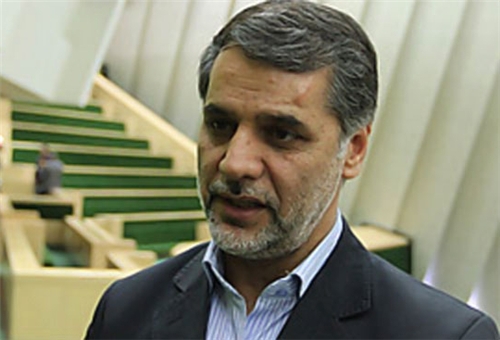Senior Lawmaker: Britain Should Apologize to Iranian Nation

 Former British Foreign Secretary Jack Straw should convey London’s apology for its wrong deeds and hostilities against Iran if he intends to visit Tehran, a prominent Iranian MP stressed.
Former British Foreign Secretary Jack Straw should convey London’s apology for its wrong deeds and hostilities against Iran if he intends to visit Tehran, a prominent Iranian MP stressed.
“If Jack Straw wants to visit Iran to extend an apology to the Islamic Republic of Iran’s people and government, the Iranian nation will accept their apology and they can come for apologizing, but if they imagine that Straw can settle the problems in the relations between Iran and Britain by this trip, they should know that the problem should be solved in Britain,” Rapporteur of the parliament’s National Security and Foreign Policy Commission Seyed Hossein Naqavi Hosseini said on Sunday.
“We hope that Straw will consult with his country’s government since they have frozen the relations and left Tehran, thus, they should apologize to the Iranian nation which means that they should settle the problem in their own country,” he added.
In relevant remarks on Saturday, another Iranian legislator also underlined that the country welcomes the visit by Straw if he seeks to convey the apology of the British officials for their wrong deeds and hostilities against Tehran.
“If the self-invited visit by Jack Straw means that they (the British officials) want to express regret over their past mistakes, it’s OK,” member of the parliament’s National Security and Foreign Policy Commission Mansour Haqiqatpour told FNA.
“They should know that they shouldn’t speak with the Iranian nation from a bullying and superior position, and that the conditions should be equal, and they should know that if the Islamic Republic of Iran doesn’t intend any change in the region, there will be no possibility for them to make any changes in Iraq, Afghanistan, Syria, Palestine and etc.”
Relations between Iran and Britain hit an all-time low in November 2011, when the two countries shut down their diplomatic missions around Britain’s key role in the imposition of a new set of Western sanctions against Iran and its repeated meddling with Iran’s domestic affairs.
Iran recalled all its staff and closed its embassy in London in November 2011 after Britain recalled its diplomatic mission in Tehran due to massive protests in front of the British embassy complex by thousands of Iranian students who demanded a cut of ties with London.
The Iranian students’ protests at the British mission came after the Iranian legislators in an open session of the parliament in November approved the bill of a law on downgrading relations with Britain. After the parliament approval, Iran expelled the British ambassador from Tehran.
The parliament approval came a week after the US and Britain targeted Iranian financial sectors with new punitive measures, including sanctions on Iran’s Central Bank and petrochemical industry.
The sanction against CBI and Iran’s petrochemical industry was adopted in a unilateral move by the US, Canada and Britain outside the UN Security Council as other council members, specially Russia and China, had earlier warned against any fresh punitive measure, including sanctions, against Iran.
The British government has also embarked on delisting the anti-Iran terrorist Mojahedin-e Khalq Organization (MKO) from its list of terrorist groups.
The Iranian lawmakers initially started drafting a bill to downgrade ties with London after Britain’s direct involvement in stirring post-election unrests in Iran in 2009, but they intensified and accelerated the move after former British Envoy to Tehran Simon Gass criticized the human rights situation in Iran.
“Today, International Human Rights Day is highlighting the cases of those people around the world who stand up for the rights of others – the lawyers, journalists and NGO workers who place themselves at risk to defend their countrymen,” Gass said in a memo published by the British Embassy in Tehran on December 9, 2010.
“Nowhere are they under greater threat than in Iran. Since last year human rights defenders have been harassed and imprisoned,” Gass added.
Following Britain’s support for a group of wild demonstrators who disrespected Islamic sanctities and damaged private and public amenities and properties in Tehran on December 27, 2009, members of the parliament’s National Security and Foreign Policy Commission drafted bill of a law requiring the country’s Foreign Ministry to cut relations with Britain completely.
The British government’s blatant stance and repeated remarks in support of the last year unrests inside Iran and London’s espionage operations and financial and media support for the opposition groups were among the reasons mentioned in the bill for cutting ties with Britain.
Iran has repeatedly accused the West of stoking post-election unrests, singling out Britain and the US for meddling. Tehran expelled two British diplomats and arrested a number of local staffs of the British embassy in Tehran after documents and evidence substantiated London’s interfering role in stirring post-election riots in Iran.







